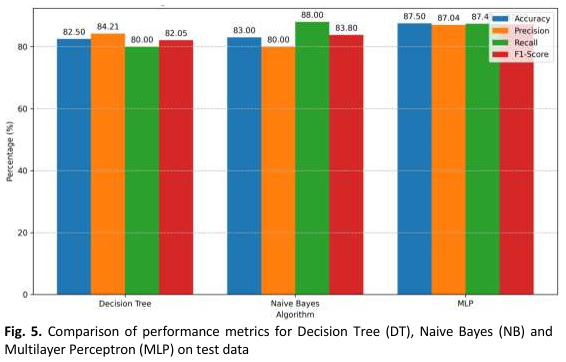Safeguarding Patient Data: Machine Learning for Phishing URL Detection in Healthcare Systems
DOI:
https://doi.org/10.37934/ard.131.1.4760Keywords:
phishing URL detection, machine learning, healthcare cybersecurity, multilayer perceptron, decision tree, Naive Bayes, patient data securityAbstract
Since the healthcare industry depends more and more on digital infrastructure, it is a perfect target for cyberattacks especially phishing. Designed to pass for real healthcare websites, phishing URLs seriously compromise patient data security. Effective strikes may cause disruptions in patient care, financial losses, and Protected Health Information (PHI) breaches. This work investigates the use of machine learning (ML) approaches for robust and accurate phishing URL detection in healthcare systems in order to handle this important problem. We examine a Multilayer Perceptron (MLP) neural network-based detection model and evaluate its performance against known techniques, Decision Tree (DT) and Naive Bayes (NB). Comprehensive URL datasets—more especially, the ISCX-URL-2016 dataset for training and testing—as well as the CIC-InvesBanking-2017 dataset combined with live phishing feeds for validation help to train and rigorously validate the models. With a high accuracy of 87.45% on test data and a precision of 84% on unseen validation data, our experimental results show that the proposed MLP model much exceeds DT and NB. This emphasizes how ML—more especially, MLP—may improve cybersecurity defences in healthcare, hence securing private patient data and the integrity of healthcare processes.
Downloads























